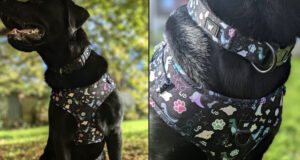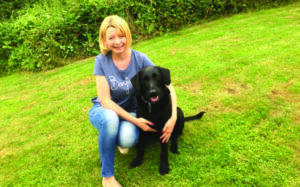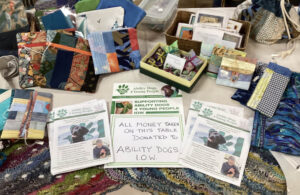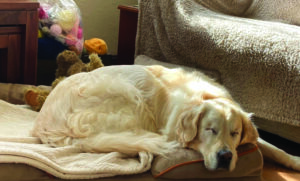
The sight of your dog scooting its bottom across the floor can be equal parts comical and concerning. While it might look like playful behaviour, scooting is often a sign of irritation or discomfort.
Here’s a breakdown of the common culprits behind this scooting behaviour and what you can do to help your furry friend.
Why Do Dogs Scoot?
There are several reasons why your dog might be dragging its rear end:
Anal Gland Issues: This is a common culprit. Anal glands are small sacs near the anus that release a strong-smelling fluid. Sometimes these glands can become impacted or infected, causing irritation and scooting.
Parasites: Fleas, worms, and mites can all cause itching and irritation around the anus, leading to scooting.
Skin allergies: Allergies to food, environmental triggers, or even shampoos can cause itchy skin, including around the rear end.
Dietary indiscretion: Eating something they shouldn’t have can upset your dog’s stomach and lead to digestive issues, making them scoot.
What to Do if Your Dog Scoots
If you notice your dog scooting, the first step is to check the area around the anus for any obvious problems. Look for signs of redness, swelling, or discharge. You can also gently lift the tail and inspect the anal glands for any signs of impaction.
Here’s what to do:
Anal Gland: If you suspect impacted glands, it’s best to consult your vet. They can safely express the glands and provide relief. Do not express the glands yourself unless a vet instructs you.
Parasites: Regular parasite prevention is key. If you suspect fleas, worms, or mites, schedule a vet visit to diagnose the type of parasite and get appropriate treatment.
Skin Allergies: If you think allergies might be the culprit, your vet can help identify the trigger and recommend treatment options like dietary changes or medication.
Dietary indiscretion: If your dog ate something they shouldn’t have, withhold food for a few hours, then offer small, bland meals like plain chicken.
When to See a Vet
While some cases of scooting might resolve on their own, it’s always best to err on the side of caution and consult your vet if the scooting is severe or persistent.
Preventing Scooting
Here are some tips to help prevent your dog from scooting in the first place:
Regular gland expression: Discuss with your vet how often this might be necessary for your dog.
Parasite prevention: Use a vet-recommended flea and worm treatment to keep parasites at bay.
Healthy diet: Feed your dog a high-quality diet that is appropriate for their age and activity level.
By understanding the reasons behind scooting and taking the appropriate steps, you can help keep your dog comfortable and prevent this unpleasant behaviour. Remember, early diagnosis and treatment are key to keeping your furry friend happy and healthy.







 Subscribe today and make sure you don’t miss out on the latest IslandDog Magazine.
Subscribe today and make sure you don’t miss out on the latest IslandDog Magazine.